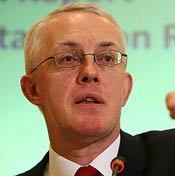However, this argument ignores the fact that most of the UK banks that had to be rescued were not conglomerate banks. Instead many majored on traditional retail banking products (current/savings accounts and personal loans/mortgages) and were, in many cases, former (and some current) building societies with only limited investment banking exposures (e.g. Bradford and Bingley, Northern Rock, Derbyshire Building Society, Dunfermline BS, Cheshire BS, etc.).
Sankey went onto say: “The proposals will not on their own do anything much to reduce the possibility that failures by people, processes and systems will not again threaten banks and their clients. Time and again we have seen that more sophisticated regulation and restriction leads to more sophisticated efforts to find ways through them, or even plain evasion.”
“We have a great opportunity to make lasting reforms that will not only help to ensure a sustainable and profitable UK banking sector, but also strengthen UK economic growth. Unfortunately the Vickers Commission is focusing on the wrong solutions – solutions that will do little to correct the failures in people, processes and systems that preceded the crisis.”
The IOR believes that banking sector reform should focus on the following:
- Measures which directly enhance the professionalism and ethics of management. Such as enhancements to the UK ‘approved person’ regime.
- Regulation and supervision that promotes risk awareness and preparedness over mechanistic approaches to the modelling of risk. There needs to be more of a balance between modelling and management judgment.
- Improving the skills and experience of supervisors to improve their ability to monitor the operational risk management activities of banks rather than simply their financial risks/health.
- Enhanced transparency through improved disclosure of banks operational risk management activities and philosophies – to support the effective operation of the free market.
- Promote greater mindfulness – ensuring that management pay greater attention to risk and the potential for failures in their people processes and systems. This should include encouraging improvements in risk reporting and measures to enhance the risk cultures of banks, ensuring that they behave in more sustainable ways in the future.
For more information/comment, contact: Parm Evans at parm@parmevanspr.com or call 07501 462045.
Notes to journalists
Edward Sankey is an independent consultant in corporate and operational risk management for banks and insurance companies. He has an MBA from INSEAD and spent the early part of his career at a leading British multinational oil company, and later at one of the ‘big four’ accounting and professional services firms. Edward is a Fellow and the Chairman of the Institute of Operational Risk. For more information see: http://https://www.ior-institute.org/the-institute/about-us
About the IOR
The Institute seeks to promote the development and discipline of Operational Risk and to foster and maintain investigations and research into the best means and methods of developing and applying the discipline and to encourage, increase, disseminate and promote knowledge, education and training and the exchange of information and ideas.
The Institute is UK based, but has a diverse, international membership of around 250 operational risk professionals with chapters in Scotland, Germany and Hong Kong and Nigeria, and members elsewhere. For more information see: http://https://www.ior-institute.org/home.
Questions to:
Edward Sankey, Chairman of the Council 07966 031 931
Simon Ashby, Vice Chairman of the Council Tel: 07905 179945


